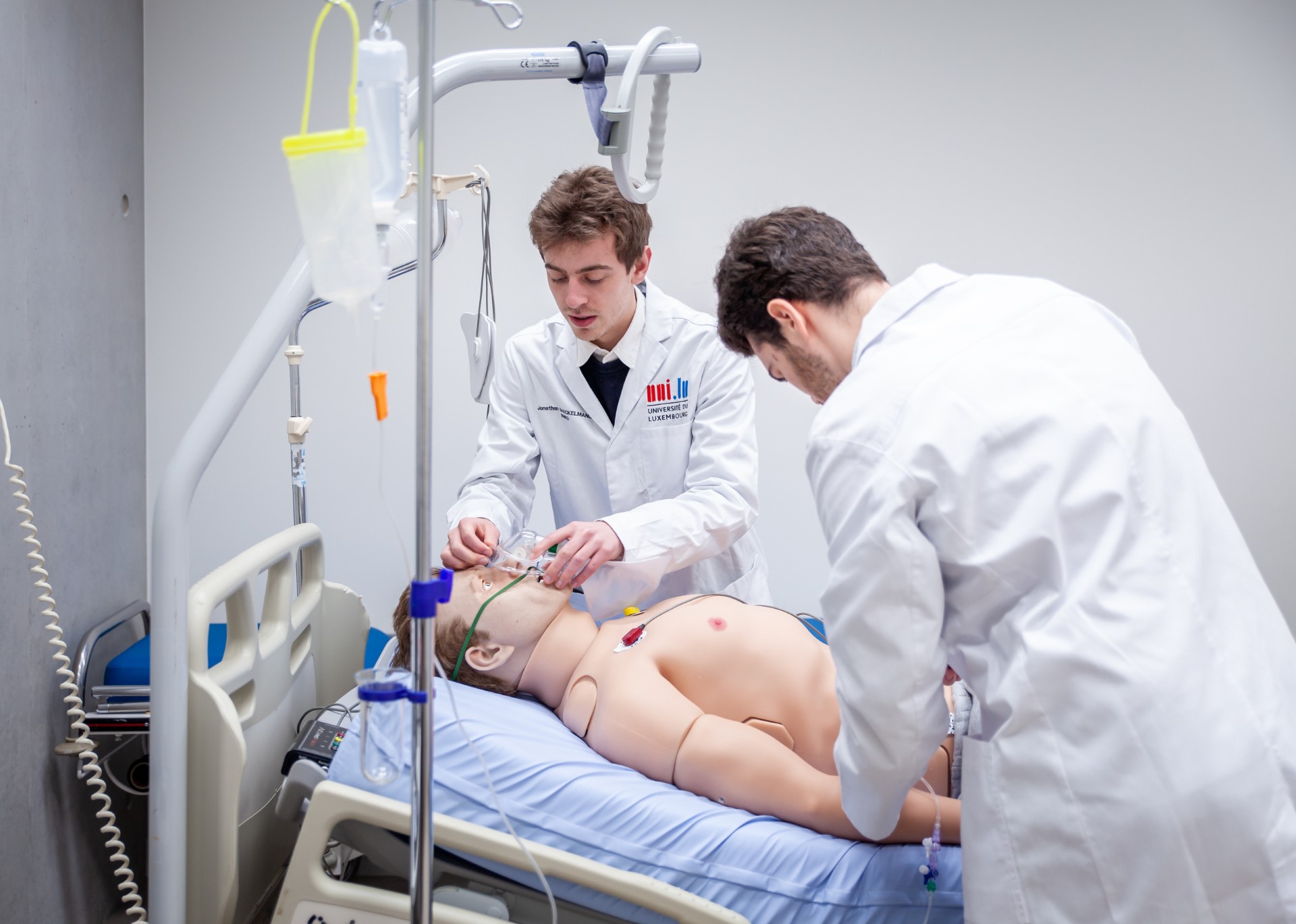Study and career opportunities
The Bachelor’s degree in Health Sciences – MTA Radiology prepares students for the practice of the Radiographer profession in Luxembourg and within the European Union. It is also possible to continue studies with a Master’s degree in a related field.
Graduates have access to a wide range of professional opportunities, including:
• Practicing as a Radiographer in hospitals and other healthcare facilities
• Working in sports medicine and rehabilitation centers
• Employment in insurance companies (medical imaging assessment and claims)
• Roles within the pharmaceutical industry
• Positions in electromedical equipment companies
• Teaching and research in higher education institutions
• Management and leadership positions in medical imaging and radiotherapy departments
• Careers in medical imaging and radiotherapy enterprises, including artificial intelligence and radiation protection companies
Plus d’infos

Learning outcomes
At the end of the programme, students will be able to deploy specialised skills in the use of ionising and non-ionising radiation for diagnostic and/or therapeutic purposes in clinical settings:
- Analyse the clinical situation of the patient to determine and prioritise appropriate care methods;
- Apply and adapt diagnostic and therapeutic care in medical imaging, nuclear medicine, radiotherapy, and functional explorations, while managing and analysing information to ensure continuity of care and facilitate clinical decision-making;
- Implement radiation protection protocols and apply principles of quality, hygiene, and safety for patients, professionals, and the public, in accordance with regulatory standards, to ensure optimal care;
- Develop and maintain an empathetic and respectful attitude towards patients, while adapting professional communication to the individual needs of patients;
- Inform and educate patients about diagnostic and therapeutic procedures, including preparations and potential outcomes;
- Provide appropriate supportive care to patients to improve their comfort and quality of life;
- Regularly evaluate their professional practices and initiate improvements based on scientific evidence;
- Collaborate effectively with other healthcare professionals to ensure holistic patient care;
- Ensure compliance with deontological, ethical, legal, and regulatory principles in all professional practices;
- Build and strengthen a professional identity based on ethical values and specialised skills;
- Research, analyse, and apply scientific data to improve clinical and professional practices.